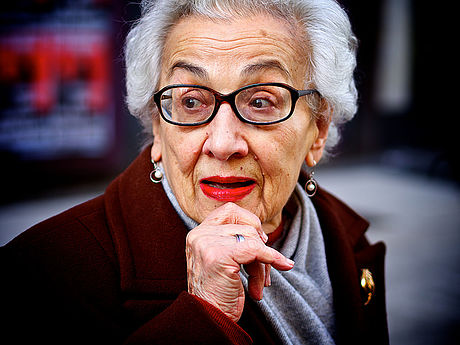
What is age related macular degeneration?
Age related macular degeneration (ARMD) is a gradual deterioration of the eye’s macula. The macula is the central portion of the retina (the photosensitive layer of cells in the back of the eye responsible for sight), which allows us to see fine details. Macular degeneration is caused by the formation of cellular deposits called drusen in the layers of the retina and, in some cases, the growth of leaky abnormal blood vessels. There are two forms of macular degeneration: dry and wet. Dry macular degeneration is the most common type (about 90% of cases) and is caused by the formation of drusen in the macula. It typically progresses slowly. Wet macular degeneration (about 10% of cases) is more detrimental to vision and is caused by the growth of leaky blood vessels under the retina.
Symptoms
Macular degeneration, or any damage to the macula, causes blurring of our central vision, needed to perform “straight-ahead” activities such as reading or driving. Symptoms include:
-
blurred vision at distance or near
-
dark spots or blank spots in vision
-
loss of central vision
-
distortions of vision causing straight lines to look wavy
-
hazy vision
-
need for increased light for reading or near tasks
-
difficulty adapting from dim lighting conditions to bright
-
colors appearing less vivid
-
difficulty making out faces
Macular degeneration does not typically affect your peripheral vision. For example, an individual with end-stage macular degeneration can see everyone in the room but can not make out the face of the person directly in front of them.
Risk Factors and Prevention
The biggest risk factors for developing macular degeneration in your lifetime are age, genetics, and oxidative stress. Most individuals are diagnosed with macular degeneration late in life. Caucasians (especially those with light skin and light-colored eyes) are at the highest risk for macular degeneration. Although there is little we can do about growing older or our genes, we can reduce our risk in other ways.
Oxidative stress is the development of small molecules called free radicals which can be harmful to every aspect of every cell in our body. This is thought to play a role in the development of macular degeneration. Smoking and sun exposure are some of the biggest causes of oxidative damage. As such, being a non-smoker and wearing UV protective eyewear can significantly reduce your risk of macular degeneration and cataracts.
A healthy diet is extremely important in preventing ARMD. For example, antioxidants can help reduce oxidative stress and the potential for retinal changes; think blueberries, green tea, and whole grains. Furthermore, nutrients like lutein, zeaxanthin, and omega 3 fatty acids are specifically protective of the macula; think orange and yellow vegetables like sweet potato and squash for foods high in lutein; dark leafy greens like spinach and kale for zeaxanthin; fish and nuts for omega three fatty acids.
The most important step to take in preventing macular degeneration, or any eye disease, is to get annual eye exams.
Treatment
The treatment for macular degeneration can again be subdivided into dry and wet macular degeneration
-
Dry / Atrophic Macular Degeneration - There is currently no specific treatment for drh5 macular degeneration but there are supplements that have been shown to potentially reduce the risk of progression. In the Age Related Eye isease Study (AREDS) by the National Eye Institute, it was found that a healthy diet supplemented with high amounts of Vitamin C, E, lutein ,zeaxanthin, zinc oxide, and copper reduced the risk of dry macular degeneration. Those diagnosed with macular degeneration are recommended to take specific AREDS eye vitamins to supplement their current diet.
-
Wet Macular Degeneration - The aim of treatment for wet macular degeneration is th5 top or slow down the growth of new blood vessels in the retina. This does not cure existing vision loss but can reduce future vision loss. The most common treatment is the use of medication to block a certain chemical in the body responsible for abnormal blood vessel growth. This chemical is called vascular endothelial growth factor (VEGF). Medication can be injected into the eye to block this chemical pathway - we refer to this type of drug as anti-VEGF. Those with wet macular degeneration may need injections every 4-8 weeks in order for it to be effective. Some cases are treated with thermal laser treatment or photodynamic therapy. Both of these treatments target the abnormal blood vessels in the retina preventing future leaking, bleeding, and growth.
Resource:
http://www.geteyesmart.org/eyesmart/diseases/age-related-macular-degeneration/amd-risk.cfm


